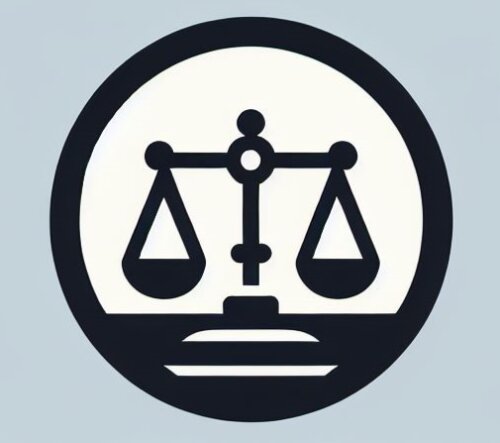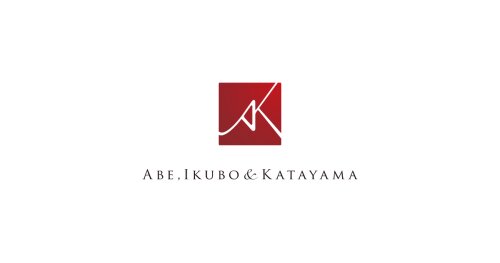Best Antitrust Lawyers in Japan
Share your needs with us, get contacted by law firms.
Free. Takes 2 min.
Or refine your search by selecting a city:
List of the best lawyers in Japan
About Antitrust Law in Japan
Antitrust law in Japan, primarily governed by the Antimonopoly Act (AMA), aims to promote fair trade practices and ensure a competitive market. Established in 1947, the AMA prevents monopolistic activities, prohibits unfair business practices, and regulates mergers and acquisitions to maintain fair competition. The Japan Fair Trade Commission (JFTC) is the regulatory body responsible for enforcing these laws, investigating antitrust violations, and imposing sanctions where necessary.
Why You May Need a Lawyer
Individuals and businesses may require legal assistance in the antitrust field for a variety of reasons, including:
- Dealing with allegations of anti-competitive behaviors, such as collusion or price-fixing.
- Navigating complex merger and acquisition processes to ensure compliance with antitrust laws.
- Responding to JFTC investigations or inquiries.
- Seeking advice on new business strategies to ensure they do not violate antitrust regulations.
- Understanding their rights and obligations under the Antimonopoly Act.
Local Laws Overview
The Antimonopoly Act in Japan consists of several key components that are crucial for maintaining competitive markets:
- Cartels: Agreements between competitors to fix prices, limit production, share markets, or rig bids are prohibited.
- Monopoly Regulation: The creation or maintenance of monopolistic market power through unfair practices is not allowed.
- Mergers and Acquisitions: Mergers that substantially restrict competition in a particular market require prior approval from the JFTC.
- Unfair Trade Practices: These include acts like predatory pricing, exclusive dealings, or abuse of dominant market position.
- Penalties: Violations can result in administrative orders, fines, and, in severe cases, criminal charges.
Frequently Asked Questions
What is antitrust law?
Antitrust law is designed to prevent anti-competitive behavior and promote fair competition in the market. It encompasses regulations against monopolies, cartels, and unfair business practices.
Who enforces antitrust law in Japan?
The Japan Fair Trade Commission (JFTC) is responsible for enforcing antitrust laws, investigating violations, and ensuring compliance with the Antimonopoly Act.
What actions are considered anti-competitive?
Actions like collusion, price-fixing, bid-rigging, abuse of market dominance, and exclusionary practices are considered anti-competitive.
What is a cartel, and why is it illegal?
A cartel is a group of independent companies that collaborate to fix prices, control supply, or divide markets, which is illegal as it restricts free competition.
Do all mergers require JFTC approval?
No, only mergers that might significantly restrict competition in a particular market require approval. However, companies must notify JFTC if specific thresholds are met.
What penalties can be imposed for antitrust violations?
Penalties include corrective orders and hefty fines. In severe cases, criminal charges against individuals and company directors may be pursued.
How can I report an antitrust violation?
Antitrust violations can be reported directly to the JFTC. They provide channels for anonymous reporting to encourage compliance.
Is there leniency for companies that self-report violations?
Yes, the JFTC offers leniency programs that can reduce or exempt penalties for companies that voluntarily report their infringement before or during an investigation.
What is considered an unfair trade practice?
Unfair trade practices include predatory pricing, tying arrangements, exclusive deal agreements, and abuse of a dominant market position.
Where can I get more information about specific cases?
Detailed information about specific cases and JFTC decisions can be found in their annual reports and public releases available on the JFTC's official website.
Additional Resources
For more information on antitrust in Japan, consider these resources:
- The Japan Fair Trade Commission (JFTC): The primary regulatory body provides a wealth of resources, including guidelines, reports, and case studies.
- Legal publications and journals on Japanese corporate and competition law.
- Local law schools and universities offering seminars or courses on antitrust law.
- Business and industry associations that provide compliance support and advice.
Next Steps
If you need legal assistance in matters related to antitrust in Japan, consider the following steps:
- Consult with a lawyer specialized in antitrust law to understand your situation.
- Gather all relevant documentation and information about your case or inquiry.
- Visit the JFTC's website for guidance and public resources related to your concern.
- Consider attending seminars or workshops to gain a more in-depth understanding of compliance and regulations.
- Stay updated with any changes in the antitrust regulations or announcements by the JFTC.
Lawzana helps you find the best lawyers and law firms in Japan through a curated and pre-screened list of qualified legal professionals. Our platform offers rankings and detailed profiles of attorneys and law firms, allowing you to compare based on practice areas, including Antitrust, experience, and client feedback.
Each profile includes a description of the firm's areas of practice, client reviews, team members and partners, year of establishment, spoken languages, office locations, contact information, social media presence, and any published articles or resources. Most firms on our platform speak English and are experienced in both local and international legal matters.
Get a quote from top-rated law firms in Japan — quickly, securely, and without unnecessary hassle.
Disclaimer:
The information provided on this page is for general informational purposes only and does not constitute legal advice. While we strive to ensure the accuracy and relevance of the content, legal information may change over time, and interpretations of the law can vary. You should always consult with a qualified legal professional for advice specific to your situation.
We disclaim all liability for actions taken or not taken based on the content of this page. If you believe any information is incorrect or outdated, please contact us, and we will review and update it where appropriate.
Browse antitrust law firms by city in Japan
Refine your search by selecting a city.
















